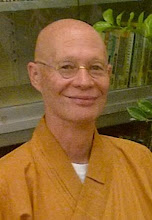Because of my all embracing hearing my name Kuan Yin is known everywhere. Since I myself do not meditate on sound but on the meditator. I cause all suffering beings to look into the sound of their voices to obtain liberation. Surangama Sutra
Two of the greatest tragedies which face us on a global proportion as we turn into this next millennium are poverty and human mass slaughter.
The poverty of which I speak is not the material poverty which we are so used to hearing about. It is another kind of poverty, far, far worse and more destructive to the fabric of society than economic poverty. This is the poverty of isolation and loneliness.
It is a kind of poverty which is extremely insidious and continues to increase and underscore our family life and social order. The symptoms of this social sickness are many - broken relationships and divorce, crime, emotional and physical violence, war between communities, mental illness, and addictions; it is a poverty which strips millions of self-esteem. A person is left dry of any value or worth and is rendered powerless.
The tragedy is that although we live in densely populated cities and chat over countless cups of tea and coffee, the sense of isolation is ever increasing within our communities, within our work places, within our schools and even within our churches.
The second great tragedy is that we have witnessed more human carnage this last century in war and murder than in any other time of world history. This is due in part to the greater destructive potential of modern weapons. In early days of world history one spear may have killed one person in war. Now one missile has the capability of destroying a whole nation.
It thoroughly astounds me that with all our sophisticated technology the world has not advanced very far at all in terms of peace and the sanctity of human life. We are able to send a space probe to the outermost limits of our universe, but we are thoroughly unable (or unwilling) to work toward a peaceful society.
I would boldly suggest that the reason for this is that we are building societies with the predisposition to instant self-gratification. We seek personal power and material possessions and we want it right now. War is a multi million-dollar business and it grants personal empowerment - for the winners that is. Peace on the other hand requires community effort and its fruits though plentiful, even financially, are not seen immediately. You can't make a quick buck on peace.
Our love affair with technology has enhanced our need for instant self-gratification. The Internet enables us to connect instantly with others at the opposite end of the globe. We can have cyber-relationships, even cyber-sex. The iPod has fast become the ‘mePod’ as millions of people absorb themselves within their invisible cone of silence. Here is the real danger. We are drawn into the illusion of being part of a 'global community'. This is nothing more than a fraud. Hugh Mackay, Australian Psychologist and social commentator observes in his book
Why Don't People Listen? :"When the emphasis is on information transfer rather than relationships, the life of the (global) village becomes meaningless: shared data is no substitute for the sense of shared identity and mutual obligation which come from shared experience." People are beginning now to isolate themselves from real community. The result will be an ever-increasing sense of isolation.
Listening is a communication experience which has within it the power to break the grip of isolation and to plant and nurture a new community. Listening shared from the level of the human heart. No other communication technology is able to do this.
Several years ago I began to remark how deep listening can affect individuals and be the catalyst for positive change both personally and as a community. As a society we have forgotten how to listen. This has been gravely injurious to our corporate journey as a society as well as to our personal growth and well-being. We have lost our prophetic foundations, as when we don't listen we miss vital information. Listening and vision go hand in hand. When we don't listen we don't see the problem ahead - we fail to see the big picture. We move blindly into the future.
I have observed what 'real' Listening can do. I have seen it heal people, I have seen it change people - dramatically, and I have seen it close sales deals worth millions of dollars where no other 'strategy' had worked. It is powerful beyond all measure.
In speaking to many people about their recovery from difficult circumstances or emotional illness, I have heard people talk about that thing which really made the difference to them - the turning point, if you like - was that some one took the time to really listen to them. This intrigued me as this phrase kept coming up time and time again: "really listened". What was it in this act of "really listening' which was able to turn a person's life around?
But we don’t have time any more. We have systems to attend to, reports to write, deadlines to meet, meetings to go to. Furthermore, the things we listen to is mainly information shuffling as this is what our technology has taught us to do. Emails are quick and precise. Text messaging is even briefer couched in texting language for rapid application. We are fast becoming shallow beings forgetting how to plummet the depth of our souls. Information has become our God.
I will never forget the lonely woman patient in ward 3B of a psychiatric hospital I was working in, when she turned to me at the end of our conversation: “I don’t care what you know. I just want to know that you care. You listened to me. That is enough and that is all.”




